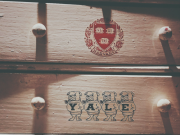One good thing about being human is that we ask questions. Another good thing is that we get answers. Contrary to postmodernism, things don’t remain mysteries forever, and answers can emerge even, or perhaps especially, in the midst of bitter controversies in which thought opens and enlightenment dawns. Truth will out and the important things emerge in high relief. In the still raging campus culture wars, the true nature of the progressive agenda is being revealed; under the cover of good-sounding goals such as justice and equality, the progressive urge to dominate and control is emerging unmistakably and becoming apparent to many.
Solzhenitsyn observed how radicalism keeps pushing liberalism further and further to the extremes of the Left, but eventually a bright line will appear beyond which many cannot go. Paul Berman, Todd Gitlin, and Frank Bruni are among those from the left-liberal point on the spectrum who have protested the alarming growth of campus illiberalism and have felt the urgency to defend intellectual freedom and open discussion.
Jonathan Haidt, who once thought to do research to help the Democratic Party win more elections, eventually saw the stark incompatibility between the contemporary clamor for “social justice” and the intellectual responsibility to truth. “False dichotomy” is one of the logical fallacies of course, the either-or position that allows no nuance (you’re part of the solution or part of the problem), but there are true dichotomies for sure.
Social justice means demanding that all groups have equal outcomes and suppressing any knowledge of group differences that might account for disparate results. For Haidt, then, President Christina Paxson’s announcement that Brown University would henceforth be dedicated to social justice means that Brown University cannot also claim to be committed to truth. (Haidt’s new book, co-authored with Greg Lukianoff of the Foundation for Individual Rights in Education, The Coddling of the American Mind: How Good Intentions and Bad Ideas Are Setting up a Generation for Failure, is reviewed by Russ Nieli in this issue.)
Yes, the cultural contradictions of “diversity” as purveyed at present are emerging with startling clarity. In response to the Google controversy, in which software engineer Jamie Damore was fired for suggesting that gender differences might account for the uneven distribution of men and women in certain job slots, evolutionary psychologist Geoffrey Miller explained how diversity and equality are at odds. According to Miller, writing in the online magazine Quillette, diversity and equality rest on two incompatible assumptions, which I condense and extend a bit: that the human sexes and races are exactly the same and thus any differences in group outcomes must be due to systemic racism and sexism; and that the human sexes and races are radically different and thus needed for the health of all educational, institutional, and corporate structures.
“The obvious problem,” writes Miller, “is that these two core assumptions are diametrically opposed”—“psychological interchangeability,” the first assumption, “makes diversity meaningless. But psychological differences,” the second assumption, “make equal outcomes impossible. Equality or diversity. You can’t have both.”
These contradictory core assumptions reign on the contemporary campus and keep its denizens walking an intellectual tightrope. Heather Mac Donald highlights this among other developments in her new book, The Diversity Delusion: How Race and Gender Pandering Corrupt the University and Undermine Our Culture. “If you're a well-trained member of a university community,” Bruce Bawer gives as an example in his review of the book in this issue, “you’re expected to keep two opposing ideas in your mind at the same time: one, that race preferences within that community are necessary and fair, and that to suggest otherwise is racism; two, that race preferences do not exist, and that to suggest that they do is racism.”
Progressives themselves are also contributing to the bright lines by unembarrassedly revealing the full extent of their intellectual deformity. One Tucker FitzGerald, who writes at a website called Medium, openly admits that progressives are intolerant; they have to be, he says, because they are “fighting to overturn horrific systems of dehumanizing oppression.” FitzGerald cites what he believes is an instructive example for our edification: “when Ruth Bader Ginsburg was asked how many women on the Supreme Court would be enough, she answered ‘When there are nine.’ In response to the collective gasp of every conservative on earth, she elaborated. ‘For most of the country’s history, there were nine and they were all men. Nobody thought that was strange.’”
Thus, FitzGerald continues, “Putting a woman in the white house [sic] in 2020 won’t mean that gender equality has arrived. We’ve had 45 presidents. It’s going to take 45 women serving as president before we even have a chance to reach parity
“Do you get it now,” our commissar demands as he ripens into belligerence and intimidation, and supplies further instruction: “If you want to pretend that the racial and gender horror in the world has already been righted, was righted in the 1960’s, is almost righted now, or can hope to come close to being righted in your lifetime (45 female presidents), you’re not getting the picture. We have a collective buildup of hundreds (thousands) of years of injustice to metabolize.”
There’s little we can do about this level of psychological impairment that sees all of human history as an unbroken tale of oppression, and claims that justice demands it all be undone through wholesale turnabout and revenge. At least one reader confessed to being rather frightened by FitzGerald’s tirade, but it is useful to know that such thinking exists. It can help us explain the limits of human nature to those who are as yet intellectually undamaged.
But let’s not pretend we haven’t heard it: “We have no interest in everyone getting treated the same,” FitzGerald storms. “We have no interest in giving all ideas equal airtime. We have no interest in ‘tolerating’ all beliefs. I don’t know where this fairy tale comes from, but it’s completely disconnected from every experience I’ve had with progressive liberal folks in my lifetime.” Let’s remember this.
Even short of the reincarnation of Lenin, Trotsky, and Stalin, there are other reasons to be on alert. The claims of social justice in the sense of equal representation of all groups, and the repudiation of the past for having failed to deliver that, have been adopted by many, often unthinkingly—as in justifying unfair treatment of individual men because men have held and still hold most of the powerful positions in society. More and more we see journalists, writers, scholars, students who are completely dispossessed of previous human understandings. A significant portion of students say to do away with the First Amendment since it allows “hate speech.” I was surprised to see the normally thoughtful Caitlin Flanagan express her belief in the veracity of Christine Blasey Ford’s accusation of sexual misbehavior against Brett Kavanaugh thirty-five years ago when they were both teenagers because something similar happened to Flanagan during her high school years (Emphasis added).
So the bright lines are becoming ever brighter. Even within the Right, we see more open disagreement and the emergence of clear points of difference. R.R. Reno, editor of First Things, opened his review of Suicide of the West: How the Rebirth of Tribalism, Populism, Nationalism, and Identity Politics Is Destroying American Democracy, the new book by National Review senior editor Jonah Goldberg, by noting that its author “exemplifies the decadence and dysfunction of today’s public discourse.” There were a couple of back-and-forths, but Reno gave no ground.
Our feature for this issue is “College Presidents.” What have they been doing as the great institutions in their charge have been slouching towards barbarism?
Building on an experience of academia that goes back sixty years to his undergraduate days, Joseph Epstein, in the first entry in our feature, “University Presidents,” recalls when such men as Nathan Pusey of Yale and Robert Hutchins of Harvard were true “educational leaders,” with “firm ideas about the principles required to run a university and the ultimate rewards of higher education.” For today’s crop of presidents, tugged along by the demands of fundraising, public relations, and political correctness, education itself is scarcely on the radar. As Epstein explains, the student protest movement of the late 1960s broke down the hierarchical structure of the university and he colorfully sketches out the consequences:
Without authority, standards quickly fell. Imagine a young English department assistant professor coming to his department chairman to announce he planned to teach a course in novels about the Vietnam War. That chairman, if he or she were anything like the chairmen of old, would likely tell the young professor that, sorry, but the subject fell beneath the department standard. Students passionate about Vietnam could surely read those novels on their own, he is likely to have said, and, besides, we have these students for a severely limited period of time, and so perhaps the young professor would do best to return to teaching his course on John Milton. In that earlier time, the young professor would, no doubt sulkily, have left the chairman’s office and returned to his own office to dust off his Milton. Today, more likely, he would claim a breach of his academic freedom and insist the decision be made by the entire department, where he would probably win out. How could he not, when his colleagues in the department were teaching courses (as they will be next quarter at the English Department at Northwestern University) with such titles as: “Queer Modernisms,” “Asian-American Fiction as Counter-Archive,” “Confederate Monuments and Union Memory,” and “Postcolonial Postmodernism”? Would a Charles Eliot, a Nicholas Murray Butler, a Daniel Coit Gilmore, a Robert Hutchins have allowed such obviously tendentious, parochial, blatantly political courses in universities under their leadership? The question, I believe, answers itself.
Indeed, many present day college presidents have teamed up with the barbarians, claiming of course to advance the cause of humanity and human rights. Speaking from her own experience and that of her husband Bret Weinstein at Evergreen College, Heather Heying, “On College Presidents,” explains how, “under the guise of a college-wide move towards greater ‘equity and inclusion,’ the core principles of the liberal arts college were dismantled” by President George Bridges (who somehow manages to be both hapless and devious), “and those who objected were taken to be enemies of the cause, and therefore of the college itself." Equity, inclusion, diversity are “buzzwords” that drown out important questions and inconvenient ideas, Heying asserts. (As Weinstein learned during his particular subset of battles at Evergreen, and as he testified before Congress, they can also be code for “black supremacy.”)
Additional articles in our feature illustrate how each awful college president is awful in his own way. J. Martin Rochester describes Tim Wolfe’s mistakes in “The Mizzou Meltdown: How a President Lost Control”; Mark Pulliam exposes the exertions of “Gregory Fenves: An Unlikely Radical at the Helm of UT-Austin”; Nathan Harden examines the shortcomings of two consecutive Yale presidents in “[Richard] Levin, [Peter] Salovey, and the Mess at Yale.” But there is some good news in university leadership and, pace Tolstoy, each happy president is happy in his own way. Jane Clark details the accomplishments of Mitch Daniels at Purdue, “Strong Leadership: Mitch Daniels Shows the Way”; and Adam Kissel lauds the openness to new ideas at Arizona State University under Michael Crow, “University of Transformation: Michael Crow at Arizona State University.”
We have a very varied set of Articles in this issue. Glenn M. Ricketts usefully recounts the whole history of “The Campus Sanctuary Movement,” and the academy’s support of illegal immigration. A piece of social science research, “Perceptions of Gender, Race, and Anti-Conservative Discrimination on Campus” is by emeritus professor of psychology Hal R. Arkes and AQ advisor George W. Dent, Jr. Instead of tearing down monuments, we can educate ourselves in why they were erected in the first place. Robert Carle does just that in a fair and honest assessment of Christopher Columbus, “Remembering Columbus: Blinded by Politics.”
In “Rediscovering the Noölogical Dimension of Higher Education,” Micah Sadigh reminds us that from ancient times education was understood to be about transcendence of self, not, as is currently promulgated, to saturate oneself in one’s “identity.” In “Thomas G. Masaryk: A Life at the ‘Bloody Crossroads,’” Kevin J. McNamara offers an example of a scholar who played a major role in politics, that is, in the history of what was to become the nation of Czechoslovakia.
We have two poems in this issue, some enjoyable doggerel by Robert Maranto that nevertheless makes a serious point, “Incident at a Small Campus,” and some thoughts on loss by Donald M. Hassler, “Much Heaviness.”
Harry Greenfield follows up his Winter 2018 Short Take on Richard Thaler’s theory of irrationalism in the economy with another Short Take on the too often misunderstood service economy. And Peter Wood begins this issue’s Books, Articles, and Items of Academic Interest with a lament for the demise of the Weekly Standard, another sign of the times.
Finally, we deeply mourn the passing of Herbert London, a founder of NAS, an advisor to AQ, and a good friend. Herb was a happy and vigorous warrior who recognized quite early what was going wrong in the academy. In his connections to NAS and AQ, and in his many other capacities, he was ever ready to stand for the good. We have three heartfelt memorials to him in this issue, by Peter Wood, Steve Balch, and Norman Podhoretz.















